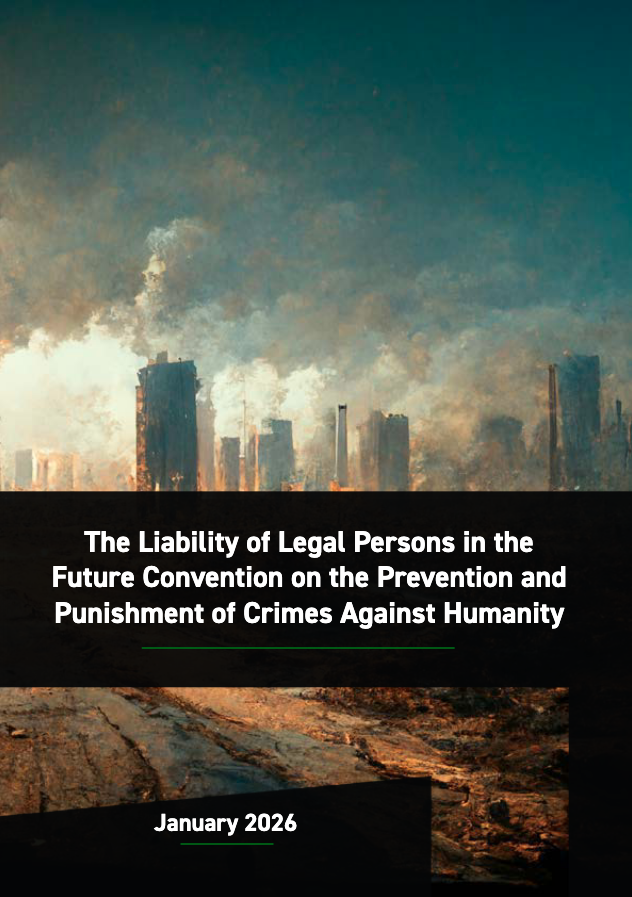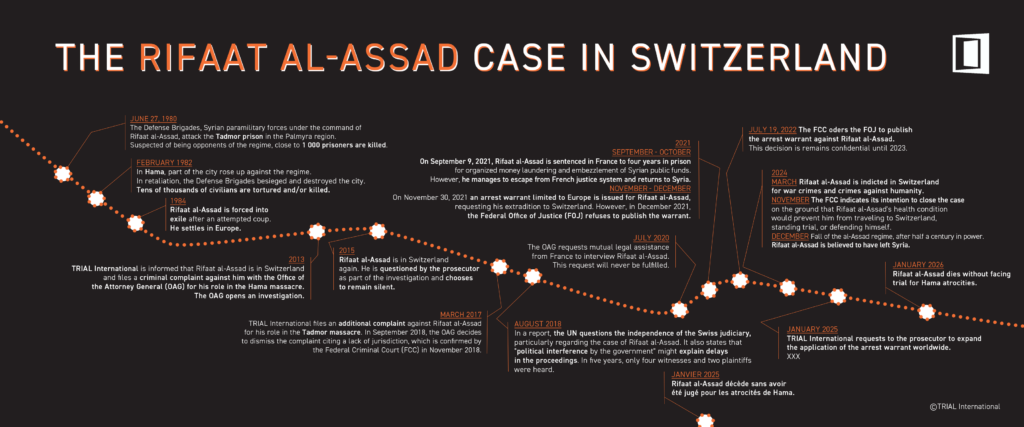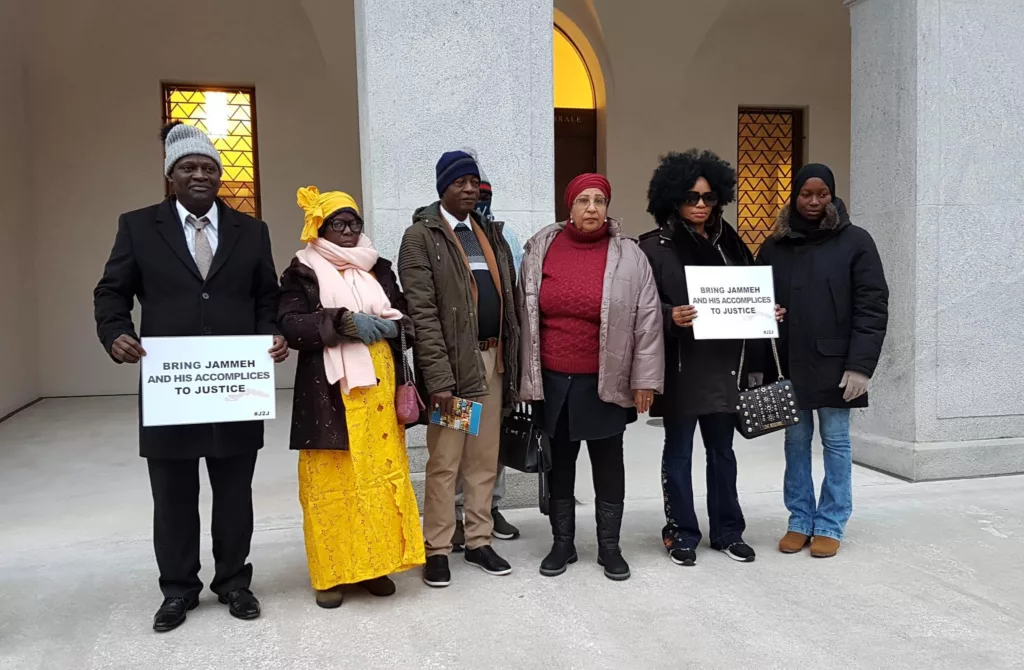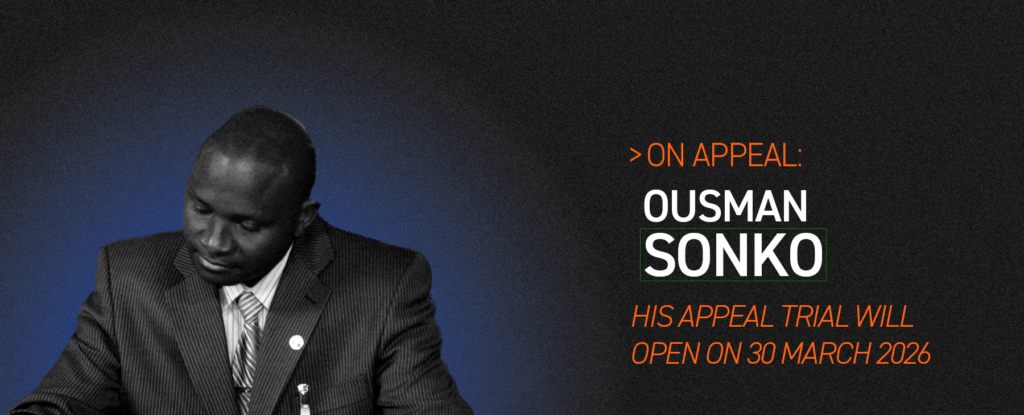Victims’ voices: A setback for the fight against impunity
“They took me into a cell and said, “[…], you’re going to talk now”. I was tied to the stretcher, dressed. […] They tortured me with the “chiffon”. The officers forced a dirty mop into my mouth and poured dirty water over my face. […] Asphyxiated, I tried to breathe in air, but I was breathing in dirty water. I felt like I was drowning. The agents were telling me that I was going to die, they told me to talk, they insulted me. They told me that if I wanted to talk, I had to wave my hand and they would stop. They poured water on my face four or five times, I felt like I was dying.”
Criminal complaint of one of the plaintiffs in the case
These are the words of one of the Algerian victims of torture, who decided to file a complaint with the Swiss prosecutor against former General and Defence Minister Khaled Nezzar. The story is far from unique, as the number of deaths or disappearances during the Algerian civil war, which opposed the government and armed Islamist groups between 1992 and 2002, is estimated at up to 200,000. What is unique, however, is the courage and determination of those who decided to fight for truth and justice.
More than a decade after the opening of an investigation by the Swiss prosecuting authorities, and six months before his trial was scheduled to start, Khaled Nezzar died at the age of 86, leaving the victims’ demands for justice unanswered.
While a single criminal case cannot provide justice for a decade-long civil war, where atrocities were committed by all sides, Nezzar’s case in Switzerland was historical given it was the only attempt to provide justice for crimes committed during the so-called Black decade, which have been amnestied in Algeria.
On the date his trial was to open in Switzerland, TRIAL International would like to honor the plaintiffs’ struggle and at the same time provide an account of the case against Khaled Nezzar.
A central player of the Algerian civil war
Khaled Nezzar was Minister of Defense during the early years of the Algerian civil war and between 1992-1993 one of the five members of the High Council of State (Haut comité d’État – HCE). As a member of of the military junta in power, he was a key player in the conflict, and long remained an influential figure in his country.
“As a member of the High Security Council, the High State Council, the Minister of National Defense and as Algeria’s strongman, Khaled Nezzar orchestrated the crackdown of the Islamist movement and encouraged the use of violence to fight it and weaken it, thereby generating fear among its members. More importantly, he knew that the forces in charge of this fight were suspected of committing massive and systematic atrocities against the civilian population. […] By virtue of the powers vested in him by his position as the central figure in the said fight, he could and should also have put a stop to the atrocities reported, notably by the civil society, and thus prevent their occurrence, which he did not do.”
Indictment of Khaled Nezzar, 28 August 2023
Following a criminal denunciation by TRIAL International and the complaints of two victims who accused him of having played a decisive role in the atrocities committed during the “Black decade”, Khaled Nezzar was detained and questioned for two days by the Office of the Attorney General (OAG) in October 2011. He was released after promising to participate in the subsequent proceedings.
“According to the denunciation, Nezzar played a crucial role in the commission of atrocities during the Algerian civil war in the early 1990s, when he was in power. He would have ordered, participated in and instigated the massive use of torture in Algeria, the killing and enforced disappearance of pretended opponents, whether or not they were members of Islamist movements.”
Ruling of the Swiss Federal Criminal Court (FCC) on the internal armed conflict in Algeria, 30 May 2018
The filing of the complaint was made possible thanks to the principle of universal jurisdiction. According to this principle, the Swiss authorities have jurisdiction over international crimes committed abroad, provided, among other requirements, that the suspect is present in the country when the prosecuting authorities start their investigation or when a complaint is filed. The initial allegations were confirmed in the indictment filed by the Office of the Attorney General of Switzerland (OAG) on 28 August 2023.
“Khaled Nezzar is accused of […] having committed war crimes […] and crimes against humanity. In particular, he is accused of having ordered and coordinated a violent crackdown on members of the Islamic Salvation Front, in order to weaken its support, and of having provided men, weapons and various torture equipment to torture, arbitrarily detain and cruelly treat civilians.”
Indictment of Khaled Nezzar, 28 August 2023
In total, over the almost twelve years of procedure, five victims joined the case as plaintiffs. TRIAL International gathered testimonies from three of them:
Legal setbacks and political interference
The newly opened criminal investigation was suspended for the first time in 2012, following Mr. Nezzar’s legal argument that his position as Minister of Defense at the time of the facts protected him from a possible criminal prosecution in Switzerland. In a landmark decision, the Swiss Federal Criminal Court (FCC) ruled that immunity could not be invoked for crimes of such a serious nature as to amount to international crimes.
“It would be contradictory and futile to, on the one hand, affirm the intention to combat against these grave violations of the most fundamental human values and, on the other, to accept a wide interpretation of the rules governing functional or organic immunity (ratione materiae), which would benefit former State officials with the concrete result to hinder, ab initio, any investigation. In such case, it would be difficult to admit that conduct contrary to fundamental values of the international legal order can be protected by rules of that very same legal order. Such situation would be paradoxical and the criminal policy adopted by the legislator would be condemned to remain dead letter in almost all cases. This is not what the legislator wanted. It follows that, in the present case, the suspect cannot claim any immunity ratione materiae.”
Ruling of the FCC on the immunity of Khaled Nezzar, 25 July 2012
After hearing more than a dozen of witnesses and victims, as well as the suspect, the OAG dismissed the case again in 2017. It concluded that there was no armed conflict in Algeria at the time of the facts, therefore no war crimes could be qualified as such, thereby excluding Swiss jurisdiction. Faced with ample evidence indicating that there was an armed conflict in Algeria in the early 1990s, the civil parties lodged an appeal before the FCC.
The FCC overturned the decision of the OAG and ruled on 30 May 2018 that a non-international armed conflict took place in Algeria in the early 1990s and that General Nezzar was aware of the countless crimes committed under his command. As a result, the case was referred back to the OAG, which resumed its official proceedings.
“[…] Therefore, even if the evidence does not point to front lines where a battle was engaged and pursued, it cannot be concluded, as the respondents do, that the law enforcement agencies merely carried out a succession of anti-terrorist operations during the period under review, which were limited to brief skirmishes.
[…] During the years under review, the evidence in the file reveals incessant confrontations carried out by both the forces of law and order and their opponents.
[…] The whole of society found itself exposed to intense and constant terror. Some 30,000 people died between January 1992 and 1994.
[…] As a result, the conditions of non-international armed conflict in Algeria between January 1992 and January 1994 have been met.”
Ruling of the FCC, 30 May 2018
In 2018, the United Nations Special Rapporteur on torture and the Special Rapporteur on the independence of judges and lawyers, in a letter to the Swiss government, denounced the political influence that was exercised on the OAG in the case of Khaled Nezzar, as well as in the case of Rifaat al-Assad. According to the UN independent experts, political pressure led to huge delays in the proceedings, in violation of the victims’ right to a remedy and to reparation.
Even after the UN communication, the investigation continued to drag on and, by the end of 2021, the Swiss legal proceedings had lasted longer than the Algerian civil war itself.
In February 2022, eleven years after the opening of the official proceedings, Khaled Nezzar was heard for three days in Bern. This final hearing marked the end of the investigation, paving the way for a trial. Despite concerns raised by TRIAL International, including on the deteriorating health of the already aged suspect, an indictment was only issued in 2023.
The end of a struggle for justice?
The OAG filed an indictment against Khaled Nezzar with the FCC on 28 August 2023, giving the plaintiffs new hope that they would finally be able to see the former Minister stand trial. He was accused of participating in the war crimes of torture, inhuman treatment, arbitrary detention and conviction, as well as murders as crimes against humanity.
In December 2023, trial dates were notified to the parties, which was to be held between 17 June and 19 July 2024. A few days later, on 29 December 2023, Khaled Nezzar passed away in Algiers. As a result of his passing, the proceedings against him will be closed in accordance with Swiss criminal procedure, leaving the plaintiffs’ demands for justice forever unanswered. With his death, the case is expected to be closed. It is not yet known, whether the court will recognize that the plaintiffs have been denied justice. If not, they will appeal the decision with the support of their lawyers and TRIAL International.
The case of Khaled Nezzar represented the first and last opportunity to see some of the crimes committed during the Algerian civil war tried. The “Charter for Peace and Reconciliation” of 27 February 2006 imposed a general amnesty for international crimes and human rights violations committed during the conflict and deprived all victims of the possibility of obtaining truth and justice in the country. No other cases are known to be ongoing outside Algeria, and the passage of time makes the possibility of opening new cases against high-ranking officials, most of whom are no longer alive, an illusion. The Swiss case was a unique opportunity to hold accountable one of the architects of some of the darkest times in Algerian history.
The case against Mr. Nezzar was made possible by the courage of the victims, the support of TRIAL International and the dedication of the plaintiffs’ lawyers. Throughout these years of investigation, the plaintiffs redoubled in patience and determination, resisting the threats and pressure to which they have been subjected – with the exception of one, who withdrew his complaint as a result. Time has also taken its toll on one of them, who died even before the indictment was issued.
In a world where impunity is the norm, the missed opportunity to hold Khaled Nezzar accountable weighs heavily on the hopes of victims and justice activists. While other important results are being achieved thanks to universal jurisdiction, this case should serve as a warning: for justice to prevail, the courage and determination of the victims, as well as NGO involvement, are not enough – prosecuting authorities should also do their part.




